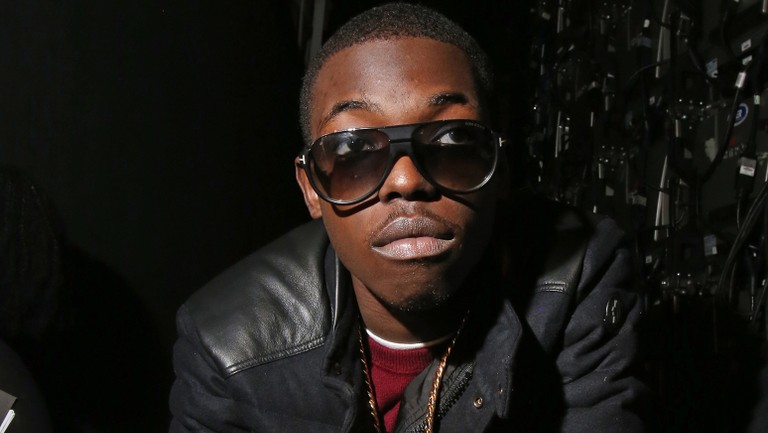In an era of mass redefinition, Neo Soul is one genre that took the best features of previous musical movements and left the rest behind.
With today’s standards in mind, a look back at 2000’s year-end Hot 100 and album charts will reveal a diverse representation of Black music. From uber-produced, TRL-friendly hits by Destiny’s Child, TLC, and Sisqo to straight down the middle, traditional R&B from Toni Braxton and Brian McKnight. Children of hip-hop soul also contributed to our music’s diversity; like Jagged Edge, Aaliyah and Mya. There were also the melodic rap/sung offerings with catchy hooks from Mystikal, Nelly, and Ja Rule. We can’t forget the gospel crossover from contemporary mainstays such as Mary Mary. And of course, there were the soulful standouts from D’Angelo, Erykah Badu, Angie Stone, and Common.
We’ll be looking back at R&B at the turn of the millennium. We’ll also explore how after a half-decade, the rapid expansion of the neo soul movement reached a long-awaited critical and commercial breakthrough. This breakthrough, unfortunately, was also the subgenre’s peak. What happened to the subgenre? How can an era so rich in creativity and diversity just… fade away?
Read on to find out everything you need to know about neo soul.
What Is Neo Soul?: The Evolution of Neo Soul Music
During the 1980s and early 1990s in both the United States and United Kingdom, neo soul began to rise as a soul revival movement.
The term is said to have originated in the late-1990s by Kedar Massenburg of Motown Records. As for the genre itself, it’s considered to have found it’s way to the mainstream in the mid-1990s; with the work of Raphael Saadiq‘s former band, Tony! Toni! Toné! and with Brown Sugar, and more.
This hybrid genre is a mix of old-school R&B, modern-day beats, and timeless soul hooks. In addition, the genre’s soulful sounds fused itself with influences such as; jazz, funk, hip hop, and pop and African music. Essentially, neo soul is modern-day soul music, with contemporary attitudes and sensibilities. It differs from contemporary R&B by it being obviously more soulful. It also tends to have deeper messages and meanings than R&B.
Massenburg coined the term as a marketing category for the increasingly popular music of a new generation. In 2002, Massenburg admitted to the paradoxical nature of such categories: classification leads to fads; something you can see much happening with today’s mainstream media. However, the industry needs them to tell its consumers what they’re getting. Furthermore, the derivation of the term, neo soul, is a paradox; neo meaning new, and soul being timeless.
Coincidentally, the term was destined to fail from the get go. Despite being dubbed as “new soul,” the music continues to remain true to its timeless roots.
What Happened To Neo Soul?
As previously mentioned, the subgrenre earned it’s mainstream debut during the 1990s.
The success came through the commercial and critical breakthroughs of several artists; including D’Angelo, Erykah Badu, Lauryn Hill, and Maxwell. Their music was marketed as an alternative to the producer-driven, digitally approached R&B during the time. However, many of the artists weren’t too proud of the term.
Remember what Massenburg said about labels?
The Subgenre’s Mainstream Decline
During the early 2000s, the same artists that made neo soul so popular began distancing themselves from dubbed genre. Despite the quality of the music, its paradoxical nature was a cancer eating it from the inside out.
“The industry, which already has a hard time with unapologetic and complicated black artists, had no idea what to do with all these enormously talented individuals who rejected entire marketing campaigns designed to ‘break’ them to the record-buying public. As such, albums were shelved or delayed or retooled and artists were dropped from major labels and forced to go it alone, making the first decade of the 21st century the least ‘soulful’—however you define it—decade for the industry itself in … well, decades”
– Tyler Lewis, Music Journalist
Artists divorcing neo soul was something that was inevitable. This is because many musicians in the genre disliked the term; calling it nothing more than a shallow marketing tool. D’Angelo and Hill disappeared. Badu refused to compromise her creative growth for the sake of a style. Jay Dee passed, and the genre began to fade during a decade where the industry was clinging to production and marketing tactics that were growing increasingly outdated.
The Aftermath
Despite the era’s fall, neo soul continues to have a historical and social relevance ’till this day.
In his book The Essential Neo Soul (2010), music journalist and culture critic Chris Campbell writes that, while the genre has been “woefully misunderstood and its artists mis-marketed”, it’s impact “validates its designation as the current face of alternative progressive soul music.”
According to Mark Anthony Neal, “neo soul and its various incarnations has helped to redefine the boundaries and contours of black pop.”
Currently, a movement in production and performance of soul-based hip hop is thriving. From bedroom producers to more established industry lyricists, the torch or contemporary RnB, Soul and Hip Hop continues to carry on.
Rediscover the sound of the neo soul era and it’s growth with the Two Bees TV ‘Just Soul’ playlist below:
More About Neo Soul:
- Neo Soul Artists That Made The Genre
- Ten First Ladies of Hip-Hop




